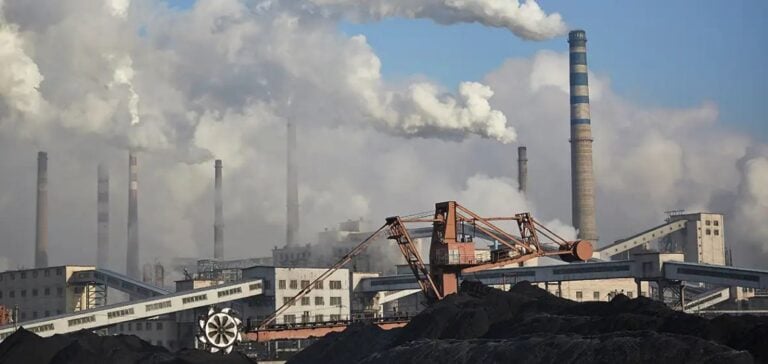China, the world’s largest greenhouse gas emitter, is revising its climate strategy to adopt a total emissions cap by 2030. According to Liu Zhenmin, its special envoy for climate change, this initiative represents a major shift, replacing carbon intensity control with a policy focused on absolute limits.
Currently, China regulates emissions by setting limits per unit of production, which allows total emissions to rise with industrial growth. By implementing a global cap, the country could transform its national compliance emissions trading system into a genuine cap-and-trade mechanism aligned with international standards.
Strengthened Climate Targets for 2025
The update to its nationally determined contributions (NDCs) is planned for 2025, with ambitious targets covering all economic sectors and types of greenhouse gases. Liu confirmed that these commitments will include a deep energy transition, despite China’s current reliance on fossil fuels.
However, China remains critical of the outcomes of the 29th Conference of the Parties (COP29). The establishment of a new collective quantified goal (NCQG) for global climate financing generated widespread disappointment among developing countries. According to Liu, the financial commitments of developed countries remain vague, making it difficult to fund projects requiring public investment, such as climate adaptation efforts.
The Role of Climate Finance
Two mechanisms are envisioned for climate financing: direct provision by developed countries and mobilization of private capital. However, the lack of quick, direct returns from adaptation projects limits private sector interest. Liu emphasized the priority of the provision-based approach, particularly crucial for developing nations.
Faced with pressure to redefine the categorization of developing countries based on income, China reaffirmed its role while highlighting its own energy challenges. Despite contributing over 50% of the world’s renewable energy capacity, its system remains dominated by fossil fuels, requiring significant investment for a complete transition.
Sino-American Collaboration Amid Uncertainty
The continuation of Sino-American climate collaboration remains a key concern, especially amid uncertainties linked to the U.S. administration. Liu expressed cautious optimism about maintaining bilateral collaborations even if the United States withdraws from international climate commitments.
Representatives from the U.S. Department of Energy also voiced their willingness to continue joint projects in sectors such as geothermal energy, energy efficiency, and carbon capture, utilization, and storage (CCUS). This collaboration could persist despite potential federal policy divergences.
Despite growing expectations for China to assume stronger climate leadership, Liu warned against a Western narrative that exaggerates its responsibilities. He stressed that the lack of mutual trust between the Global North and South remains a significant obstacle to climate progress, transcending simple financial considerations.






















